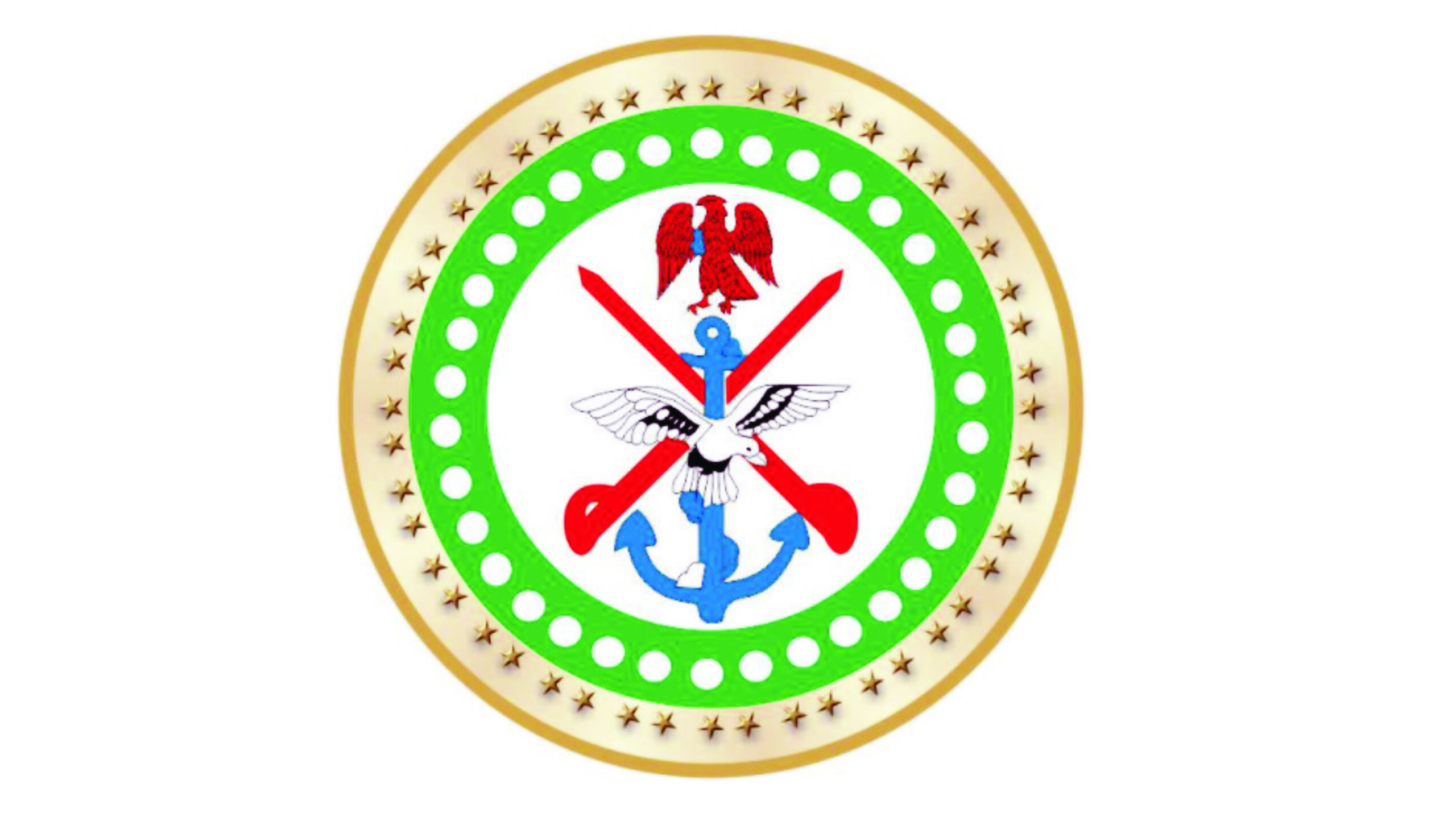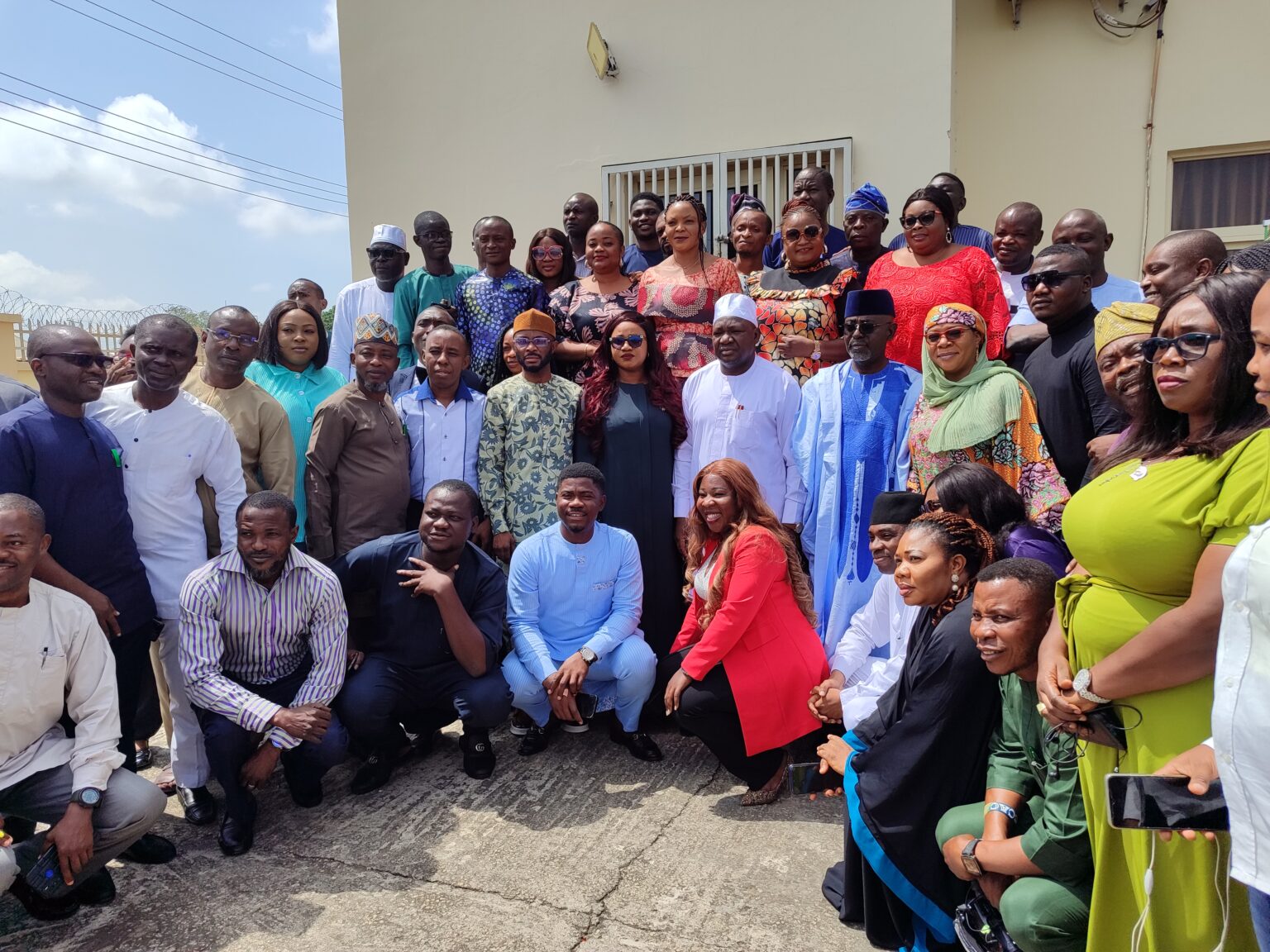Defence
Military, journalists partners in progress – CDS
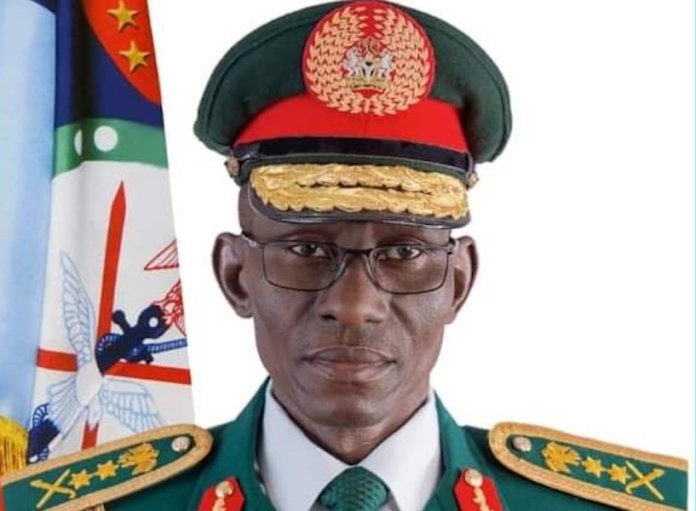
The Chief of Defence Staff (CDS), Gen. Lucky Irabor, has described journalists and the Armed Forces of Nigeria as partners in progress in ensuring lasting peace and tranquility in the country.
Irabor said this at the opening of a 3-Day Conference on “Enhancing Journalists-Military Cooperation to Checking Insecurity in Nigeria” organised by Zacklair Investment Limited on Tuesday in Abuja.
Represented by the Chief of Defence Civil-Military Cooperation, Rear Adm. Adeseye Ayobanjo, the CDS said that journalists had steadfastly executed the duties of informing, educating and enlightening the public.
Irabor said that the journalists update the public daily on occurrences and activities happening around them and beyond.
He added that Section 217 of the 1999 Constitution of Nigeria as amended entrusted the military with the responsibility of defending the country from external aggression.
According to him, the military are also empowered constitutionally to maintain its territorial integrity and securing its borders from violation on land, sea or air.
In his words, “it can be deduced that journalists work on the minds and soul of the populace using their medium and platforms to condition the minds of people and set agenda to enable people make informed decisions on day-to-day issues.”
Irabor said the military on the other hand, had the responsibility of ensuring that the physical space was not threatened or violated by any injurious force or actions.
These actions, he said are perpetuated by enemies of the state that could lead to disruption of peace and orderliness in the society.
He said that journalists and members of the armed forces remained partners in progress that needed each other to actualise the mandates of their professional callings.
“For instance, notwithstanding military monopoly in the use of the weapons of violence, it cannot win the war in the hearts and minds of the people by kinetic means.
“On the other hand, in spite of journalists’ ability to use the power of the pen and media to articulate and disseminate opinions and issues, they need a safe space and conducive environment.
“This is facilitated by the military and other security agencies for human activities to thrive.
“This marriage of necessity between the military and journalists has come to stay because there cannot be any form of development in the absence of enduring peace and transquility.
“That said, the marriage is not altogether without conflict,” he added.
The CDS said the conference was timely in view of the myriads of contemporary security challenges bedeviling the country vis a vis the various military operations being conducted to stem the tide of criminalities in various parts of the country.
He said that patriotism would help both military and journalists to set aside professional differences and peculiarities to project the country favourably in the eyes of both national and global communities.
In his remarks, the President of the Nigeria Union of Journalists (NUJ), Mr Chris Isiguzo, said there was need for military and the media to work together to mitigate situations that would threaten peace and stability in the society.
Isiguzo said the media had the responsibility of setting an agenda in managing conflict like the strategies for reducing conflict, adding that every situation of conflict had typical cycle or pre-conflict stage, the conflict stage and post conflict stage.
According to him, the media, no doubt, still remains one of the most reliable institutions, especially in the context of conflict resolution and development.
He however, urged journalists to be conflict managers, long before conflicts and their attendant consequences manifest.
(NAN)
Defence
Shettima Leads Nation to Honour Fallen Heroes at 2025 Armed Forces Remembrance Day
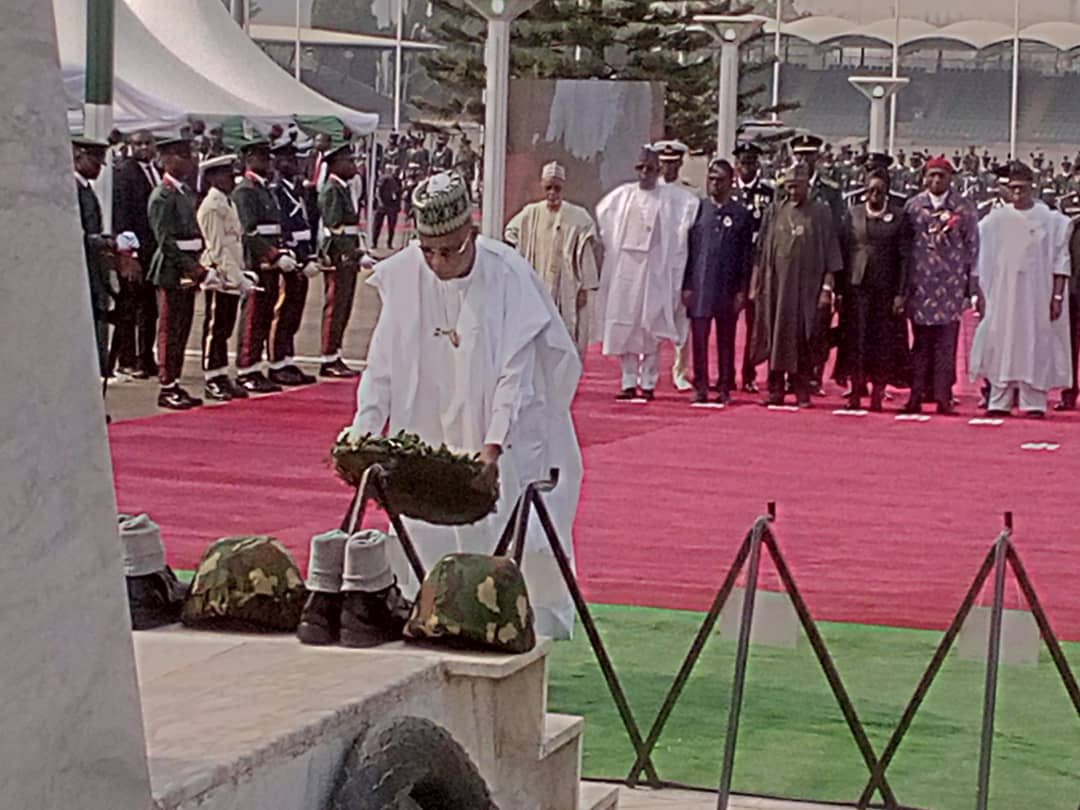
Vice President Kashim Shettima on Wednesday led a distinguished delegation, including Senate President Godswill Akpabio, members of the Federal Executive Council, National Assembly, service chiefs, and the diplomatic corps, to pay tribute to the nation’s fallen and living heroes.
The solemn occasion, held at the National Arcade in Abuja, featured a wreath-laying ceremony marking the climax of the 2025 Armed Forces Celebration and Remembrance Day (AFCRD).
Vice President Shettima was the first to lay a wreath, followed by Senate President Akpabio, Deputy Speaker of the House of Representatives Benjamin Kalu (representing Speaker Tajudeen Abbas), and Chief Justice of Nigeria Justice Kudirat Kerere-Ekun.
Other participants in the ceremony included Minister of Defence Muhammed Badaru, Minister of the Federal Capital Territory Nyesom Wike, Minister of State for Defence Bello Matawalle, and service chiefs led by the Chief of Defence Staff, Gen. Christopher Musa. The Inspector-General of Police, Kayode Egbetokun, also joined in paying respects.
Representatives of the diplomatic corps, the Nigerian Legion, and widows of fallen soldiers, led by Veronica Aluko, President of the Military Widows Association (MIWA), also laid wreaths to honour the heroes.
A traditional military salute followed, with the firing of three volleys, a symbolic act rooted in the age-old battlefield custom of pausing hostilities to retrieve the fallen.
The Vice President capped the event by signing the anniversary register and releasing ceremonial white pigeons, symbolizing peace and freedom.
The week-long celebration began on January 10 with a Jumma’at prayer at the National Mosque, followed by an interdenominational Christian service on January 12. Other highlights included a social and awards evening for military personnel, a regimental dinner and awards night for officers, and a lecture and art exhibition hosted by Defence Headquarters.
This year, the celebration, renamed Armed Forces Celebration and Remembrance Day, aims to honour both fallen heroes and serving personnel for their dedication to national peace and security.
Observed annually on January 15 in Nigeria, the day commemorates those who sacrificed their lives in global conflicts, including the First and Second World Wars, the Nigerian Civil War, peacekeeping missions, and internal security operations. It also serves as a platform to honour veterans and garner support for the families of the fallen.
As Vice President Shettima noted during the event, “Their sacrifices remind us of the cost of freedom and the unwavering commitment required to preserve our nation’s unity and peace.”
Defence
Armed Forces Remembrance Day: Makinde Reaffirms Commitment to Fallen Heroes’ Families
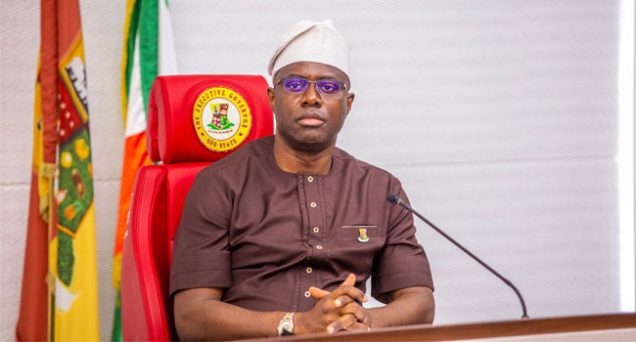
Gov. Seyi Makinde of Oyo State has reiterated his administration’s unwavering support for widows and children of fallen heroes, as well as the welfare of vulnerable ex-servicemen.
The governor made this pledge during the grand finale of the Armed Forces Remembrance Day celebration, held on Wednesday at the Arcade, Government House, Agodi, Ibadan.
Makinde emphasized that the state government would prioritize the welfare of those who had sacrificed for the nation’s unity and security.
“The fallen heroes paid the supreme price to ensure the country remained one, safe, and secure,” Makinde said.
He also commended the service commanders, officers, and men of all security agencies operating in the state for their dedication to maintaining peace and fostering economic growth.
“They are supporting this administration to maintain an environment where economic activities can thrive,” he added.
The chairman of the Nigerian Legion, Oyo State Command, Julius Ogunkojo, called on the government to address the needs of officers and men of the armed forces. He also appealed to well-meaning Nigerians to assist ex-servicemen in achieving better living standards.
The event featured the symbolic firing of rounds volley, laying of wreaths, and the release of ceremonial pigeons by the governor, symbolizing peace and unity.
The Armed Forces Remembrance Day, celebrated annually, honours the sacrifices of past and present military personnel for the nation’s security and sovereignty.
Aviation
NAF airstrikes destroy terrorist food depot, kill scores in Lake Chad
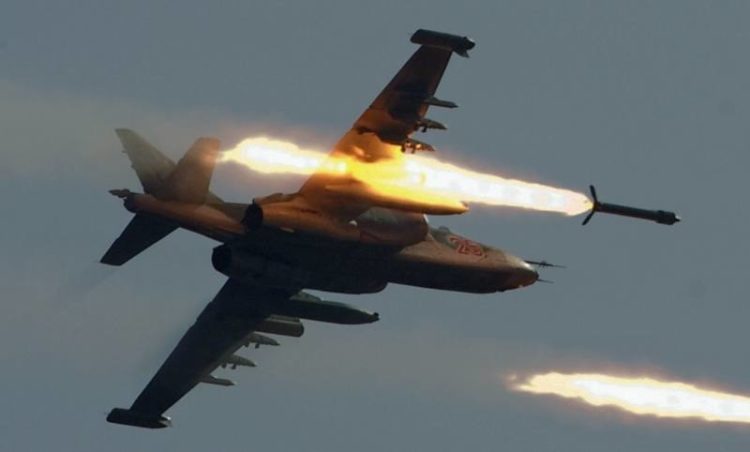
This is contained in a statement by the Director, Public Relations and Information, Nigerian Air Force (NAF), Air Commodore Olusola Akinboyewa, on Monday in Abuja.
Akinboyewa said the NAF aircraft carried out the operations in Nov. 23 on the strategic location, identified through meticulous intelligence efforts.
He said the location served as a critical food storage site and a sanctuary for terrorist commanders and fighters.
He added that intelligence had previously linked terrorists in the location to recent attacks, including the assault on troops in Kareto on Nov. 16.
According to him, the NAF fighter jets, in response, launched a robust air interdiction mission, destroying identified structures used as storage facilities and neutralising terrorists on-site.
“Mop-up operations using cannons ensured the complete elimination of fleeing hostile elements.
“The operation’s success was made possible by extensive Intelligence, Surveillance, and Reconnaissance (ISR) missions conducted over several days, confirming the presence of active terrorist structures camouflaged under dense vegetation.
“The destruction of the terrorist enclave, including food storage facilities, severely disrupted their logistical operations, while the neutralisation of a significant number of fighters diminished their capacity to launch future attacks,” he said.
Akinboyewa said the mission had demonstrated the NAF’s unwavering commitment to defending our nation and people, acting singly and supporting surface forces in counterterrorism operations.
He reiterated the NAF’s commitment to sustain robust independent and joint operations until all enemies of Nigeria’s prosperity and wellbeing are brought to justice.
-

 Headlines4 years ago
Headlines4 years agoFacebook, Instagram Temporarily Allow Posts on Ukraine War Calling for Violence Against Invading Russians or Putin’s Death
-

 Headlines4 years ago
Headlines4 years agoNigeria, Other West African Countries Facing Worst Food Crisis in 10 Years, Aid Groups Say
-

 Foreign4 years ago
Foreign4 years agoNew York Consulate installs machines for 10-year passport
-

 News1 year ago
News1 year agoZero Trust Architecture in a Remote World: Securing the New Normal
-

 Entertainment3 years ago
Entertainment3 years agoPhyna emerges winner of Big Brother Naija Season 7
-

 Headlines2 years ago
Headlines2 years agoNigeria Customs modernisation project to check extortion of traders
-

 Entertainment2 years ago
Entertainment2 years agoMovie download platform, Netnaija, announces closure
-

 Economy2 years ago
Economy2 years agoWe generated N30.2 bn revenue in three months – Kano NCS Comptroller






